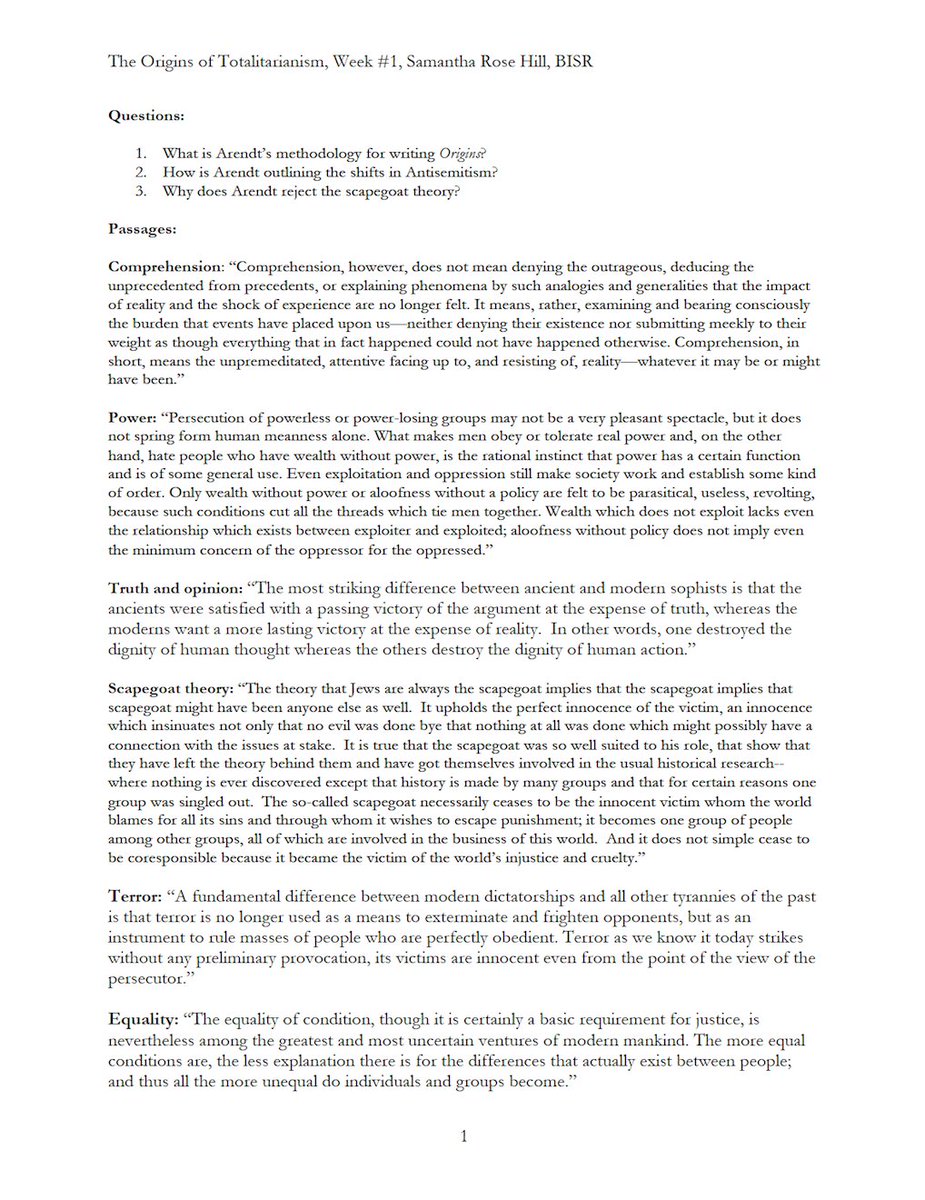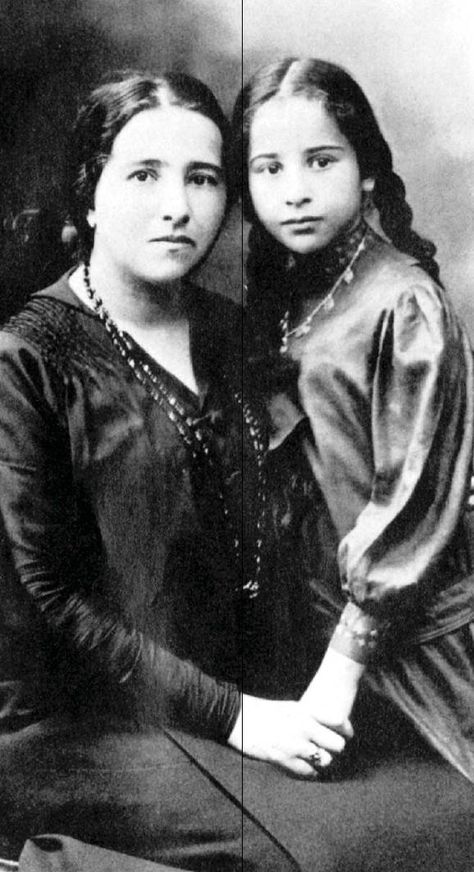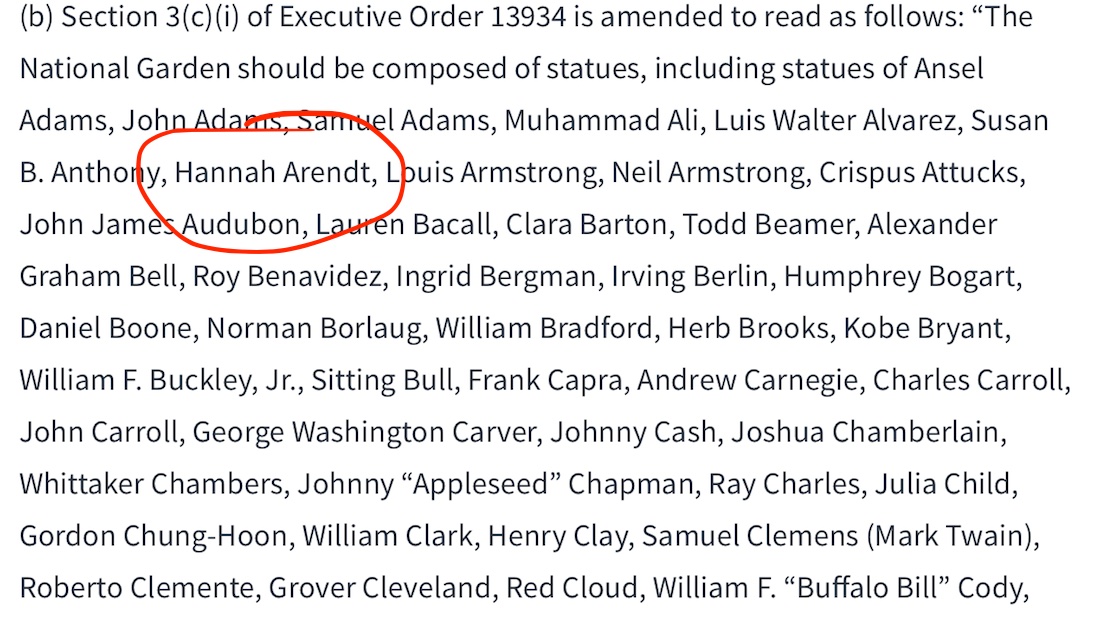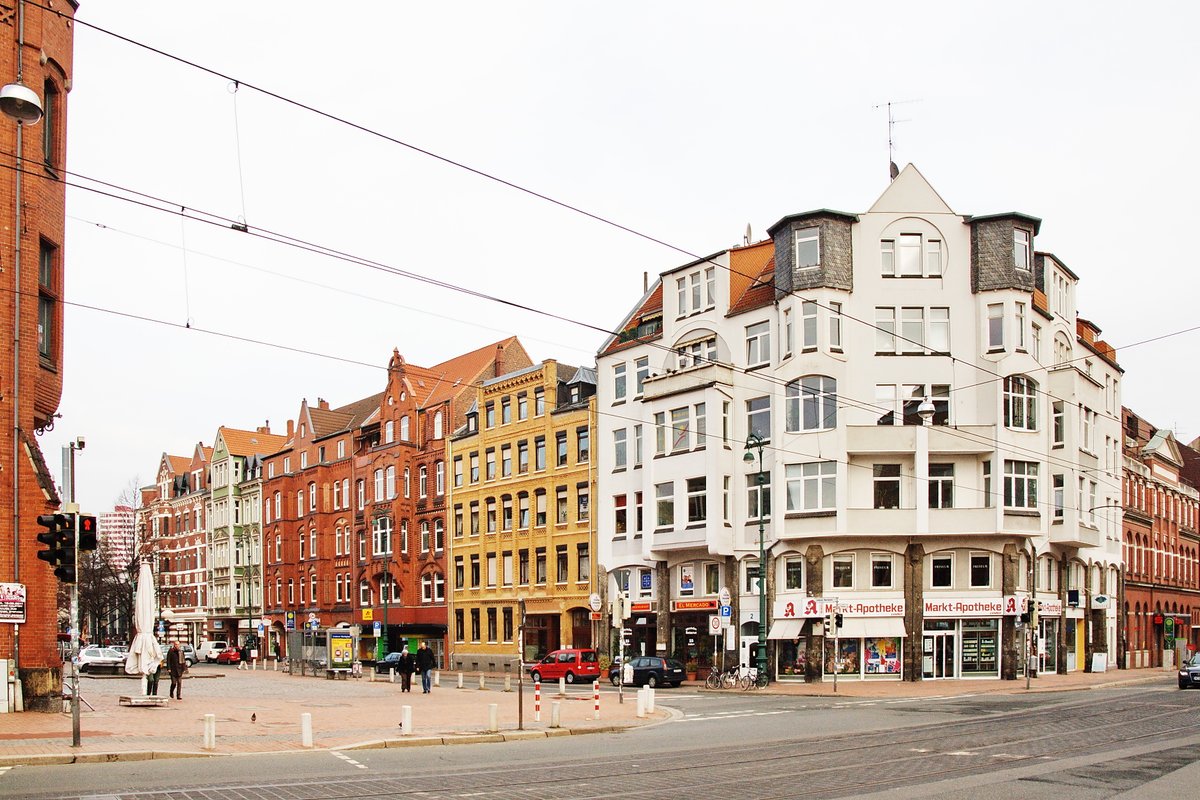
Books: Hannah Arendt and What Remains
Representation: The Wylie Agency
Substack: https://t.co/S2b4vQsA4v
2 subscribers
How to get URL link on X (Twitter) App







 Citizenship will always be an instrument of imperialist nation-state politics, which create superfluous masses of people who are systematically stripped of their humanity. Arendt called this radical evil. She understood it as a three-step process.
Citizenship will always be an instrument of imperialist nation-state politics, which create superfluous masses of people who are systematically stripped of their humanity. Arendt called this radical evil. She understood it as a three-step process.


 We read books 5 and 7 of Saint Augustine's Confessions.
We read books 5 and 7 of Saint Augustine's Confessions. 


 Martha Cohn married Paul Arendt in April 1902. She knew he had contracted syphilis in his youth, and it was in remission when they decided to have Hannah Arendt in 1906. But by the time Arendt was born, he was in steady decline. He died on October 10, 1913.
Martha Cohn married Paul Arendt in April 1902. She knew he had contracted syphilis in his youth, and it was in remission when they decided to have Hannah Arendt in 1906. But by the time Arendt was born, he was in steady decline. He died on October 10, 1913. 


 First let me say that the irony of this order is beyond laughable. After Hannah Arendt escaped Nazi Europe, she emigrated to New York in 1941. She was a housekeeper, a journalist, & an adjunct professor before she wrote her first major work The Origins of Totalitarianism in 1951.
First let me say that the irony of this order is beyond laughable. After Hannah Arendt escaped Nazi Europe, she emigrated to New York in 1941. She was a housekeeper, a journalist, & an adjunct professor before she wrote her first major work The Origins of Totalitarianism in 1951.


 "Her independence and idiosyncrasy were actually based in a true passion she had conceived for anything odd. Thus, she was used to seeing something noteworthy even in what was apparently the most natural and banal."
"Her independence and idiosyncrasy were actually based in a true passion she had conceived for anything odd. Thus, she was used to seeing something noteworthy even in what was apparently the most natural and banal."



 2) If you want to read Hannah Arendt on protest, rebellion, and solidarity, I'd recommend: On Violence, Civil Disobedience, the end of On Revolution, the essays on Jaspers and Lessing in Men in Dark Times, and this essay on the Freedom to be Free: lithub.com/never-before-p…, But....
2) If you want to read Hannah Arendt on protest, rebellion, and solidarity, I'd recommend: On Violence, Civil Disobedience, the end of On Revolution, the essays on Jaspers and Lessing in Men in Dark Times, and this essay on the Freedom to be Free: lithub.com/never-before-p…, But....

 At the age of 3, Hannah Arendt's family moved to Königsberg so her father’s syphilis could be treated, and they could be near family. She spent most of her youth here, at Tiergartenstrasse 6.
At the age of 3, Hannah Arendt's family moved to Königsberg so her father’s syphilis could be treated, and they could be near family. She spent most of her youth here, at Tiergartenstrasse 6. 

 For people who want to dive into Hannah Arendt's work headfirst:
For people who want to dive into Hannah Arendt's work headfirst: